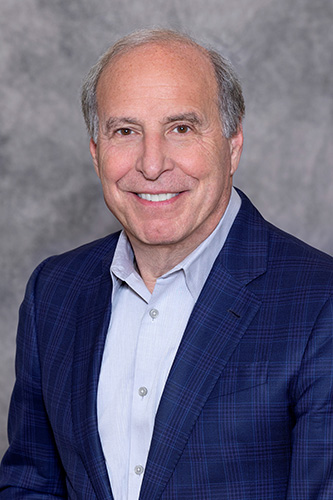Lately I’ve been saying that we are in a pandemic marathon. For nearly two years, hospital systems like Providence have been responding to recurring surges in volumes and it’s been demanding – many times exhausting – for our caregivers. Thanks to their dedication, we have been able to continue meeting the health needs of our communities, especially for those who are most vulnerable.
There’s another worldwide crisis unfolding around us – a public health emergency where hospitals must lead by example. The Earth is getting hotter, and that warming is driving climate change that affects the health of communities. Even as the pandemic continues, we cannot wait any longer to respond.
That’s why Providence has made a bold commitment to become carbon negative by 2030. And why we are supporting the UN Climate Change Conference in Glasgow to accelerate climate action. Health care providers may not immediately come to mind when thinking about climate change, but in reality, we are a significant contributor. With the resource intensity of delivering health care, the sector unintentionally contributes 8.5% of all greenhouse gases in the U.S.
For Providence, our calling to serve all includes reducing our carbon footprint. We cannot create health for a better world and reduce health inequities if we ignore our own part in the problem. It’s a matter of justice for our communities to have cleaner air and water.
Something I learned at the start of our environmental stewardship journey is that there’s a big difference between sustainable terms. "Carbon neutral" refers to greenhouse gases offset elsewhere. "Net zero" means there’s a balance between emissions produced and emissions taken out of the atmosphere. “Carbon negative” is the most ambitious – that’s where an organization removes more carbon dioxide from the atmosphere than it produces.
Providence was the first U.S. health system to set a hard goal to become carbon negative.
This has not been done before in health care. We do not have a well-worn route to success. Knowing this, we began by gathering data, doing an energy audit and creating a framework to drive change. Then we started small, with LED lighting retrofits, reducing waste, and adding recycling and composting. One of our anesthesia teams figured out a way to reduce greenhouse gases from anesthetic agents. The pandemic taught us we can reduce business travel and still be very connected. We’re working on cutting carbon emissions in our supply chain, including transportation.
We may be the first health system to establish an ambitious carbon negative goal, but we don’t want to stand alone. At a forum this year hosted by the National Academy of Medicine about decarbonization, I invited other health care leaders to join us. The invitation remains open. It’s not an easy path but it is the right one for our world.
Here at Providence, we’ve made real progress on our goals. In the first 6 months of 2021, we reduced our carbon footprint by 7 percent, improving by more than 1 percent a month. This is equivalent to removing 33 million driving miles from the road and saving 23 million sheets of paper. As we continue our progress, President Biden’s Build Back Better framework, with its transformative investments in climate, will be essential to us achieving our goal. This is the kind of bold plan we need to bring climate and environmental justice to every community.
Earth Day can’t just be an annual observance. We need to take action every day to restore the health of the planet. A few days ago, Pope Francis spoke about the pandemic and climate change, observing that “every crisis calls for vision, the ability to formulate plans and put them rapidly into action.“ He extended an “invitation to all to play our own part in changing our collective response to the unprecedented threat of climate change and the degradation of our common home.” It’s time to act.


